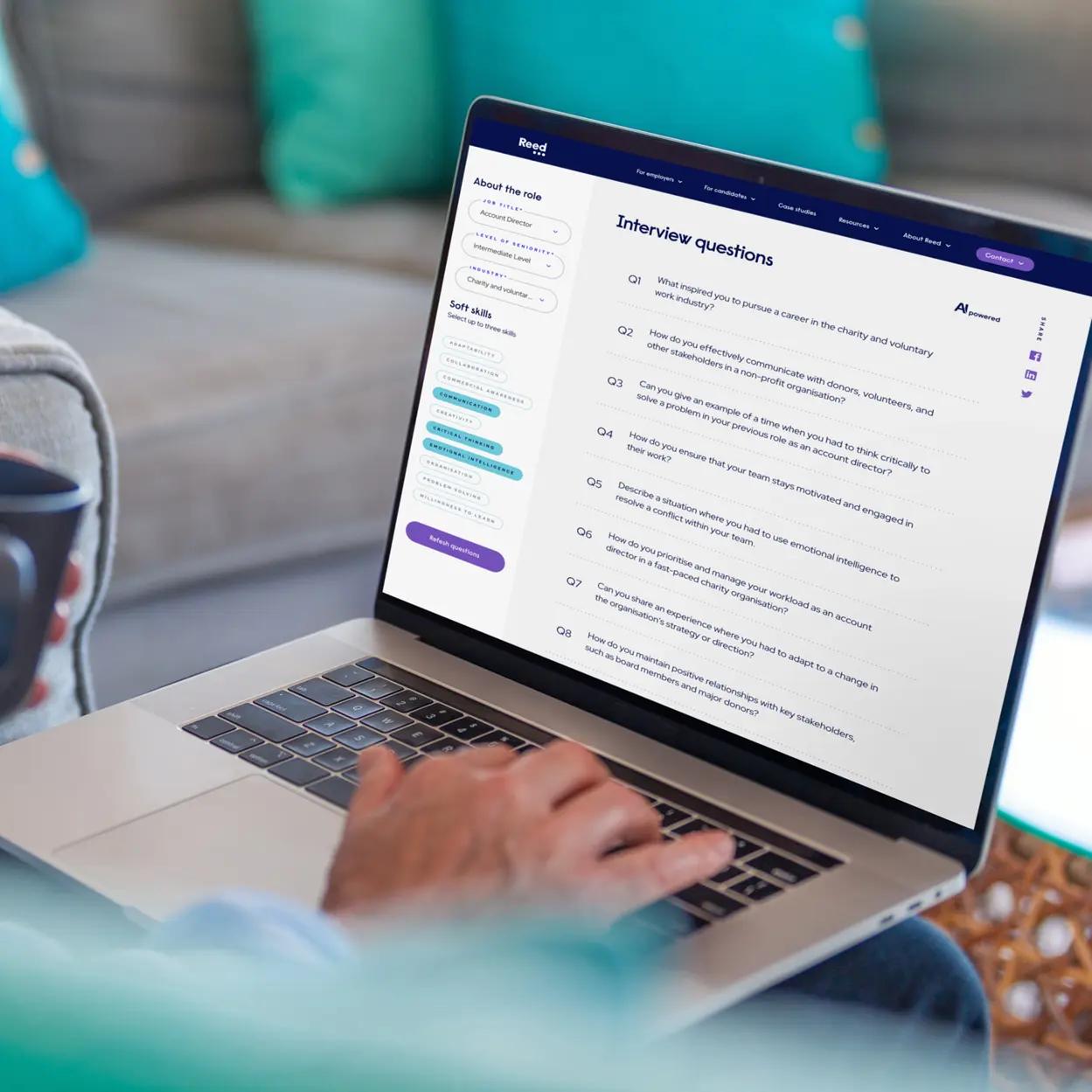If you've got an interview coming up, chances are it will contain elements of, the competency based interview style.
If you're wondering what on earth a competency interview is and the thought of facing the interviewer with no answers runs a shiver up your spine, don't worry! We're here to help guide you through the process with our top 6 competency based interview tips.
Generate interview questions in minutes with our interview question generator.
1. What is a competency based interview
The competency based interview is becoming more widely favoured by employers but can catch unsuspecting candidates out. It is a structured interview style that centres around the idea that previous behaviour is a strong predictor of future behaviour. The aim is to gather examples of when a candidate has previously demonstrated the skills (competencies) required by the role they are interviewing for. These examples are considered as evidence to suggest how well a candidate will perform in the new job.
2. Predicting the questions
We've all been there, left stammering with a look of perplexed panic as you rack your brain for the last time you overcame a challenge in the work place... but it doesn't have to be this way. As with any interview style, a little preparation goes a long way. Firstly it is a good idea to spend some time prior to your interview thinking about the skills the company is looking for. From this you will be able to predict the types of questions you may be asked. Good general areas to begin thinking about are examples of when you have worked well in a team, overcome a challenge and met difficult deadlines. When tailoring your answers more specifically to the job role you are applying for it can be very useful to re-read the job advert and pay close attention to how they describe the type of candidate they are looking for. From this you'll be able to reshape and mould your examples until you are the living breathing job spec of a hiring manager's dreams.
3. Your examples
Your aim when answering is to provide a varied range of examples that show a consistent picture of you as a desirable candidate. Your examples could include things like successful projects, interactions with other people, convincing a difficult audience or analysing a large amount of information. Importantly, when providing your examples there is no need to feel restricted to your achievements in work. Examples from school, university and sports teams can be just as valuable. The key is to rehearse. Do whatever you need to do to ensure that you are able to promptly and confidently recall your successes on the day, and present yourself as the dynamic, charismatic and competent individual that you are.
The questions aim to get the best out of you
4. Be specific
You will be asked questions relating to competencies that will make you successful in the role. In order for the employer to be able to fully understand your appropriateness for the role it is important that you talk about specific past experiences, rather than your general way of working. It is also important that you describe what you actually did, rather than talking about the performance of a team you were a member of. Don't be afraid to blow your own trumpet.
5. Don't feel disheartened
Competency based interviews are very structured, with every candidate being asked the same predetermined questions. Your interviewer will be taking notes throughout the interview to ensure that they have an accurate record of everything you have said. These two elements in combination may make the interview feel a little impersonal, but they ensure that the process is completely fair and objective. You will have time at the end, of the interview to ask questions, which can be a good chance to build rapport and leave the interview on a much more personal note.
6. Don't panic
These questions are not designed to trip you up, they are designed to get the best out of you! They are an opportunity for you to show what you are really made of and to showcase your achievements. So prepare well, sit up straight, ensure your answers are clear, concise and confident and you'll ace the competency based interview. Good luck.
7. Common competency-based interview questions
While the exact questions you'll face will vary for different roles, there are some tried-and-tested questions which most interviewers will use. Here are some of the questions you should expect to face in a competency-based interview:
What are your greatest strengths?
Tell me about a time you supported a member of your team who was struggling.
Give an example of a time you’ve had to improvise to achieve your goal
What was the last big decision you had to make?
Why are you a good fit for this company?




